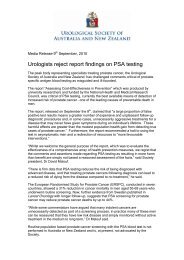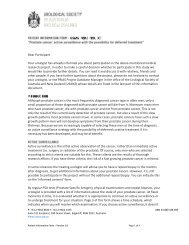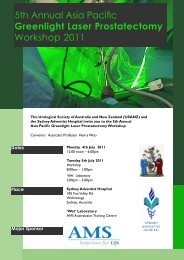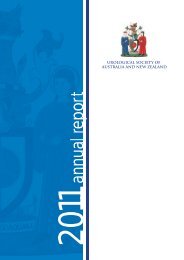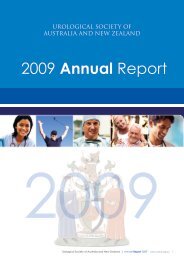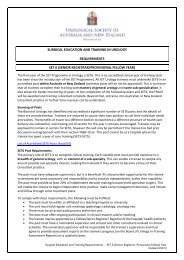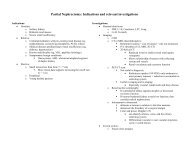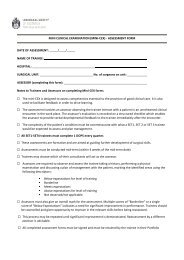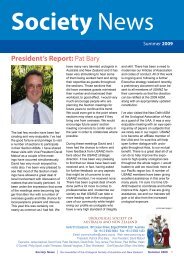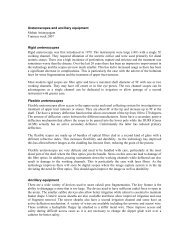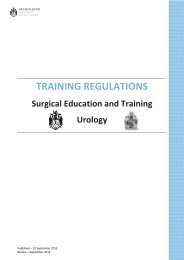CIRCUMCISION OF INFANT MALES
CIRCUMCISION OF INFANT MALES
CIRCUMCISION OF INFANT MALES
You also want an ePaper? Increase the reach of your titles
YUMPU automatically turns print PDFs into web optimized ePapers that Google loves.
A legal convention applying to the best interest of children is Article 3 of the United Nations<br />
Convention on the Rights of the Child.[117] This international treaty has been ratified by<br />
Australia and New Zealand. Article 3 requires that, in all actions concerning children, the<br />
best interests of the child shall be the primary consideration. This is consistent with New<br />
Zealand and Australian legislation.<br />
The British Medical Association’s statement on the Law and Ethics of Male Circumcision<br />
states that “if it was shown that circumcision where there is no clinical need is prejudicial to<br />
a child’s health and well being it is likely that a legal challenge on human rights ground<br />
would be successful. Indeed if damage to health was proven there may be obligations on<br />
the State to proscribe it”.[118]<br />
Some jurisdictions recommend that a decision to circumcise an infant should be agreed to<br />
by both parents.<br />
ETHICAL CONSIDERATIONS <strong>OF</strong> NEONATAL <strong>CIRCUMCISION</strong><br />
Circumcision of infant males is a medical procedure. The ethics of this medical procedure<br />
fall within the ethical framework which applies to all medical procedures performed on<br />
children. This framework has 3 main principles: (1) Focus on the child, and their needs and<br />
interests; (2) minimisation of harm to the child (including prevention of<br />
avoidable/unnecessary harm); (3) recognition of the child’s parents as the decisionmakers<br />
for the child (on the basis that this best promotes the child’s interests and wellbeing).<br />
The standard ethical position is that parents have the right and obligation to make<br />
medical decisions for their child – a right which can only be taken away from parents if<br />
their decision is significantly detrimental to the child. The standard ethical obligations of<br />
doctors are to act in the child’s best interests, not cause excessive or avoidable suffering<br />
to a child, and provide the child’s parents with information so that they are able to make a<br />
fully informed decision about their child’s health care. A basic ethical requirement for<br />
performing a medical procedure on a child is that it can reasonably be expected to<br />
produce more benefits than burdens (in the long term) for the child.<br />
Parental reasons for wanting infant male circumcision fall broadly into three categories: (1)<br />
health, (2) hygiene and appearance, and (3) religio-cultural reasons. Depending on their<br />
reasons, parents are aiming to secure different types of benefits for their child: physical<br />
health (medical) benefits, and/or psychosocial benefits of various kinds. The physical<br />
health benefits for a male of being circumcised (e.g. reduced risk of HIV infection) could<br />
largely be obtained by deferring circumcision to a much later age. The psychosocial<br />
benefits that parents seek, including full inclusion and participation in a religious or cultural<br />
community, or fitting in with family and social group norms, often cannot be obtained<br />
unless circumcision is done in the newborn period, as required by the religious or cultural<br />
customs.<br />
Since circumcision involves physical risks which are undertaken for the sake of<br />
psychosocial benefits or debatable medical benefit to the child, the ethical question is<br />
whether it is ethically justifiable to allow parents to make this decision for their child – or is<br />
it a parental decision which ought to be overridden because it is detrimental to the<br />
interests of the child?<br />
14



